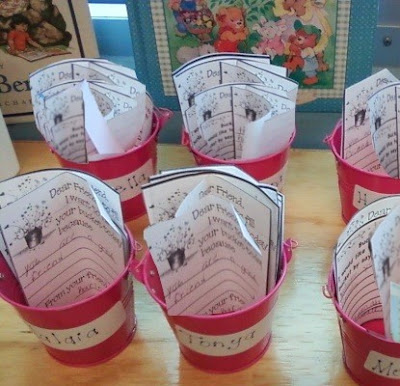I attended a workshop a couple of years ago. This workshop led by Dr. Marsha Tate was like no other that I've ever attended...and I've attended a lot!
Going into the workshop, I wasn't quite sure what "Worksheets Don't Grow Dendrites" even meant! I thought how boring this would be. WRONG! The energy in the room full of teachers was incredible! When I left the workshop, I was pumped up so much! I couldn't wait to get started on my "whole brain" classroom! While several things that were "key", I already had in place for years, there were some I didn't. I have always been a huge proponent of grouping student desks! That is very important in the whole brain classroom. Also, having no feeling of threat has always been a HUGE, GIGANTIC deal in my classroom. I tell my kiddos that no one has the right to make them feel bad about themselves or the right to keep you from learning! I start first thing every year establishing a "classroom community"! I reinforce this all year long. This is a MUST in the whole brain classroom.
Some things that I have learned are:
An attention getter such as...
teacher: "Class"
students: "Yes"
teacher: "Classity Class"
students: "Yessity Yes"
is important.
However you say "class" {in a growly voice, class-class-class, squeaky voice, etc.} students respond with "yes" in the same voice.
Also, when you have something really BIG or IMPORTANT, give the signal...
teacher: "Hands and Eyes!"
Students will put hands in lap and focus on or almost stare at the teacher.
Teaching in chunks is of the utmost importance. Once you have taught your students a chunk, then you clap and say "Teach" and they clap and say "Ok". They turn to their partner and teach what you have just taught. You do the "class-yes" to get their attention back.
Gestures are important too. When having students read a passage to their partner, for example, they will read dramatically and use hand gestures. When they are teaching their part as previously mentioned, they will use hand gestures when they teach. This helps them to remember what they are teaching.
Movement is very important. One activity that Dr. Tate had us participate in was "appointments". In a huge room of teachers, we had to go find two people that you weren't sitting with. You had to ask for an "appointment"...one person for a morning appointment, and one for an afternoon one. Once you got your two appointments, you return to your seat. Then sometime in the morning she would stop what she was doing and say, "It's time for your morning appointment. You need to find out.."insert whatever here" from the person you meet with. Then in the afternoon, this would take place with your afternoon appointment just as the morning one, with the exception of the task with this person was a different one.
An example is to have them teach something in particular from Math that day. Once they got the answer, they were to return to their seats. This got them up and active but with a meaningful task to teach something to someone else. This helps them to better understand what was taught, as well as, helping the person they are meeting with.
I found another site that is really good at teaching teachers how to teach in a whole brain classroom. You may want to check it out here. There are some great classroom videos on this site!
And, I 'm going to leave you with this...It's a freebie of my "appointment cards". I have added a text box for each appointment in case you want them to find an answer to something at their appointment and write it down.
Until we chat again...
Happy Teaching,













I'm finding myself more and more interesting in Whole Brain Learning. Thanks for posting this, it's a great explanation of what I've seen!
ReplyDeleteSally from ElementaryMatters
I'm slowly trying to integrate some of the whole brain teaching concepts into my classroom! I like the way you laid it all out. That workshop sounds fabulous, I'll have to check it out!
ReplyDeleteJen
firstgradersandcupcakes.blogspot.com